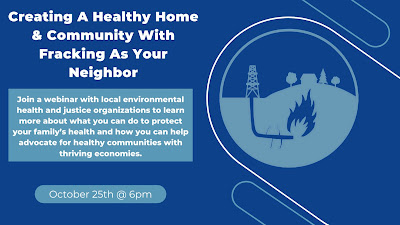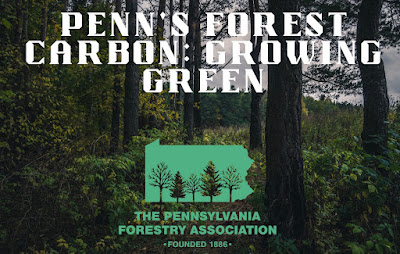Well, your environment impacts all these health factors.
Election Day 2022 is approaching us. Like every election, this one matters. The reality is that your vote helps shape the policies that impact both your life and the lives of the people and communities you love and value.
On November 8, electors will vote on governors and U.S. senators and representatives as well as many other key federal, statewide, and local officials.
Read on to see how you can be better prepared to vote for candidates committed to defending public health in the face of shale gas development.
What is shale gas development and why does it matter?
Shale gas development (also known as “unconventional gas development,” “hydraulic fracturing,” or “fracking”) is a method of removing and processing fossil gas from shale formations.
This relatively new technology introduces horizontal drilling to the process and features high-pressure water mixed with chemicals and fine sand to fracture the rock and unlock previously inaccessible gas (largely methane).
Shale gas development comprises other operational stages, including flaring gases, eliminating wastewater, transporting gas through pipelines dotted with compressor stations, and separating out usable components at processing plants.
Shale Gas Impacts
Shale gas development directly impacts the quality of life of you and the people and communities that you love and care about. Peer-reviewed studies indicate a range of adverse health impacts that increase with proximity to shale gas facilities.
The studied impacts include--
-- Asthma and upper and lower respiratory complaints
-- Hospitalizations for heart failure and mortality from heart attacks
-- Low birth weights, intellectual and developmental disabilities, and infant mortality
-- Congenital heart defects and neural tube defects
-- Headaches, fatigue, and skin rashes
-- Stress, anxiety, depression, and other mental health symptoms
What can you do?
Now is the time to ask candidates about their positions on shale gas development and public health. You can reach out to incumbents as well as their opposition via the following methods--
-- Candidate web pages
-- Elected officials’ official government websites
-- Directory to find congressional representatives
-- Directories that list your state representatives.
-- Submit questions for inclusion in candidate forums/questionnaires (both virtual or in person)
-- Tweet at a candidate
You can call, write a formal letter, or send an email. Be sure to indicate that you live in the individual’s district or potential district. Also, include a means for the office to respond to your issues and concerns.
What Questions Should You Be Asking?
What questions should you be asking candidates about shale gas development and public health?
-- What is your position on shale gas development?
-- How will you improve the current laws, policies, and regulations to ensure the safest environmental and public health practices?
-- How will you improve the water, air, and health in communities that are located near polluting sites such as shale gas development?
-- What is your position on setbacks (distances between shale gas facilities and homes, schools, and businesses) and why?
-- How will you incorporate current public health data and research in your decision making around shale gas development?
-- How will you ensure consistent and accurate monitoring of shale gas development sites and reporting to communities, and what remediation do you propose when there are health, environmental, or safety breaches?
-- How do you plan to address the negative environmental and health aspects of blue hydrogen (what the SGD industry now calls “clean hydrogen”) development?
Have my questions been answered?
It probably wouldn’t surprise you to know that candidates can be good at evading issues, at sounding like they have answered your questions when, in fact, they haven’t.
For example, a candidate might say, “We need the good jobs shale gas development provides, so I support it.”
At that point, we need to ask, “Okay, sure. People need to make a living. But can't the industry do a better job of reducing emissions so that my kids are better protected? Should a leaky valve or subpar monitoring really put my family’s health at risk? What price do you put on public health?”
Or a candidate might say, “The industry says shale gas development is safe, so it must be. Besides, the government has rules about emissions that protect people.”
Here, we might say something like, “Should we really trust any industry to regulate itself? No industry has ever successfully done so. Plus, state and federal emission guidelines are not safe standards. They are meant to give industry a potentially achievable goal, but they do not prevent people from being exposed to levels of pollution that are sometimes harmful to them.”
Be wary of the answers you get from candidates. Do your research and get your information from multiple reliable sources.
Compare answers from competing candidates and decide which ones truly promote your best interests and those of your family.
It is critical that state and local officials understand the potential local public and environmental impact of shale gas development in their communities throughout the cycle of shale gas production.
Importantly, the answers they provide to your questions should demonstrate a thorough understanding of actionable policy interventions that protect public and environmental health, a willingness to pivot to safer practices as they become available, and a consideration that providing diverse economic opportunities for residents is better than relying on one short-term cash stream.
For additional information about how and where to vote, visit this link.
For more information on programs, initiatives, upcoming events and how you can get involved, visit the Environmental Health Project website or follow them on Facebook or Twitter. Click Here to sign up for regular updates.
Related Articles - Oil & Gas Health Impacts:
-- Senate Hearing: Body Of Evidence Is 'Large, Growing,’ ‘Consistent’ And 'Compelling' That Shale Gas Development Is Having A Negative Impact On Public Health; PA Must Act [PaEN]
-- Environmental Health Project: PA’s Natural Gas Boom - What Went Wrong? Why Does It Matter? What Can We Do Better To Protect Public Health? [PaEN]
-- Creating New Brownfields: Oil & Gas Well Drillers Notified DEP They Are Cleaning Up Soil & Water Contaminated With Chemicals Harmful To Human Health, Aquatic Life At 272 Locations In PA [PaEN]
-- Penn State Study: Potential Pollution Caused By Road Dumping Conventional Oil & Gas Wastewater Makes It Unsuitable For A Dust Suppressant, Washes Right Off The Road Into The Ditch [PaEN]
-- Environmental Health Project - Part 1: Personal Narrative Of Environmental, Health Impacts From Oil & Gas Drilling On Siri Lawson, Warren County [PaEN]
-- Environmental Health Project - Part II: Personal Narrative Of Environmental, Health Impacts From Oil & Gas Drilling On Siri Lawson, Warren County [PaEN]
-- University Of Pittsburgh School Of Public Health Recruiting Families In Southwest PA For Study Of Childhood Cancer, One Of 3 Studies Of Potential Health Impacts Linked To Shale Natural Gas Development [PaEN]
Related Articles This Week:
-- Oct. 25 Webinar: Creating A Healthy Home And Community With Shale Gas Development In Your Neighborhood [PaEN]
-- Conservation Groups Urge DEP To Deny Transco Permits For Natural Gas Pipeline Thru Exceptional Value, High Quality Watersheds In Luzerne, Monroe Counties [PaEN]
-- Susquehanna River Basin Commission Holds Nov. 3 Hearing On Water Withdraws, Including 3 Natural Gas Development Proposals [PaEN]
[Posted: October 14, 2022] PA Environment Digest

















